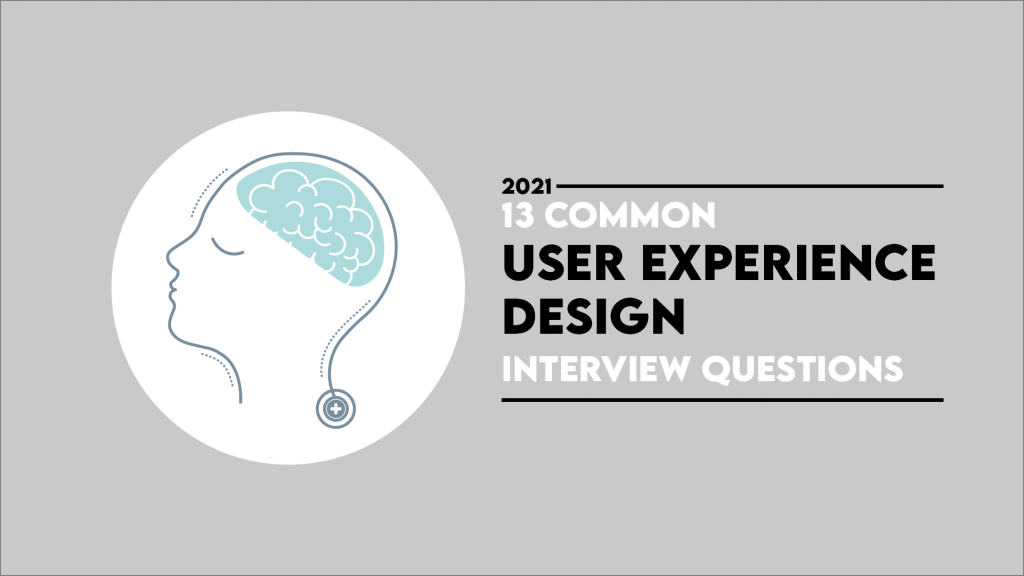Product Manager Interview Questions and Answers 2023
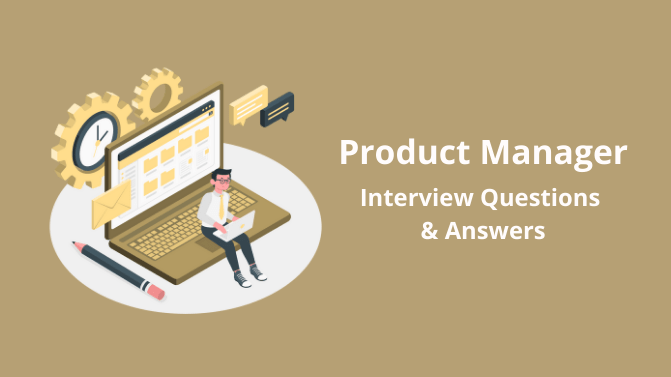
Product Managers play a crucial role in a product’s success from identifying customer needs and business objectives to aligning the team towards a common vision. Moreover, the product market provides solutions to a plethora of problems impacting both personal and professional lives. With this rise in innovation and technology, companies are always on the lookout for Product Managers who have varied skillsets consisting of leadership, analytics, strategy, technical and designing skills.
Through this article, we help you prepare the frequently asked Product Manager interview questions and answers based on the skill type.
Product Manager Interview Questions for Design
- How do you decide that a product is designed well?
- How can you improve our product?
- Which product do you use the most and what do you like/dislike about it? And why?
Strategy Questions
- You are building a new product for a new market. How do you determine what customers want and need in this new market?
- How do you prioritize competing features?
- What is your experience with shutting down a product or service? What are the key challenges in an end-of-life (EOL) process?
Leadership questions
- How do you set goals for your team? And how do you track these goals?
- How do you keep your team motivated?
- How do you communicate with executive leadership?
Behavioural Questions
- What are the key strengths that make you a great fit for this PM role?
- What aspects of product management do you find exciting?
- What are the two things you’re trying to improve that you believe will make you a better Product Manager?
- What are some of the key achievements in your role as a PM
- What is the hardest thing you have experienced as a Product Manager?
- Can you share a lesson from your last product launch?
Technical questions
- How familiar are you with APIs?
- Talk about the most technical project you’ve worked on and the successes and challenges within it.
Data Analysis questions
- How do you measure the success of your product?
- You are the PM for an eCommerce platform that you have just launched to a new market. What are the three most important metrics for you to keep track of?
- Talk about a time you used data to make a product decision.
Design Questions for Product Manager Interview
The core responsibility of a Product Manager is to work and align a team to design, build, and continuously enhance a product.Thus, most companies would want to access the product designing skills of the candidates for Product Manager jobs by asking below or similar questions:
1. How do you decide that a product is designed well?
Through this question, the interviewer wants to understand how you ensure to meet the product life-cycle KPIs (Key Performance Indicators). Give little insights about your product development approach, how you research the demand and competitor markets, and how you decide on the features to include in the product.
Next talk about the metrics that you use to measure product engagement and design effectiveness. Some of the metrics that you can mention are:
- Product engagement score (PES): Provides a unified view of user interactions with the product.
- Returning visitors: Tracks users that visit and use your product multiple times. Helps in knowing how well the product is doing in gaining and retaining customers.
- Response Time: Measures how fast is the product responding to the user requests or actions.
- User feedback: By directly collecting information collected from customers or users, you will know about their reactions to your product or service.
2. How can you improve our product?
How you ask all the right questions to the interviewer, rather than jumping to a solution with half baked information, tells a lot about your strategy and product approach skills. This is exactly what the interviewer is looking at through this question apart from your communication skills, attention to detail, prioritization and analytical skills.
It would be ideal if you do some research about the vision of the company, its product, the product features and UX beforehand. This will give you time to analyze their solution; how well it is designed, what problem it solves, how well it solves the problem, and who is their target audience.
Few approaches that you can suggest to improve the product are:
- Frequently catch up with real users to understand their feedback
- Track the product engagement through an analytics platform
- Use product success KPIs and metrics to monitor performance
3. Which product do you use the most and what do you like/dislike about it? And why?
This is a fairly common Product Manager interview question asked by top tech companies. By asking this question the hiring manager wants to access certain things like:
- Your view and understanding of product design
- How well you understand the connection between user satisfaction and product
- Your knowledge of contemporary product(s) in the market
- Do you analyze the product with attention to detail
- Your ability to deliver positive criticism
The best way to answer this question is to use a structured approach using what is called the BUS approach.
- Business Objectives: Pick up an app that you love and use frequently, like Netflix, Instagram, Uber etc. Understand what are the value adds of this product to the business. For instance, you could say, “The more time users are on the app and the deeper their engagement, the more rewarding the platform is to advertisers, which creates a virtuous cycle. Therefore, in terms of its business objectives, Instagram is most likely interested in user engagement and revenue.”
- User Problems: Explain to the interviewer what this app does. Next, talk about who are the targeted audience and what are the problems that this product is trying to solve
- Solutions: Explain how the product you have selected caters to the needs of the audience and addresses their pain points better than the competitors. Next, discuss trade-offs and suggest improvements, if any.
Strategy Questions
Strategy is yet another important skill for Product Manager jobs. Let’s see how to approach such questions and answer them with ease.
1. You are building a new product for a new market. How do you determine what customers want and need in this new market?
Meeting customer’s wants and needs is vital for making a product successful. To attract and retain new customers, you must understand what they want and expect from a particular product.
In this answer, talk about how you gain customer insights through extensive customer research, how to ask questions to a real audience, taking feedback, interview, etc.
It is better to focus on 2-3 different methods to discover user behaviour and requirements. Few such methods are:
- Focus groups: A market research technique that involves interviewing a small group of people consisting of your target audience.
- Keyword search: Keyword research helps in determining what the customer is searching for, e.g. a company, a particular product, or a solution to a certain problem.
- Social listening: This process helps in tracking and analyzing what the consumer is talking/sharing about the industry, products, your company, etc. on various social media channels.
2. How do you prioritize competing features?
Prioritizing features is a burning issue for product teams. Product Managers often find it challenging to decide which features to include in a product that will set it apart from competitors. There are some strategies and frameworks that can help you with this.
To make a strong point to the interviewer, mention a few of these popular prioritization strategies and frameworks:
Value versus Complexity Quadrant: Prioritize the features based on the business value and their relative complexity to implement.
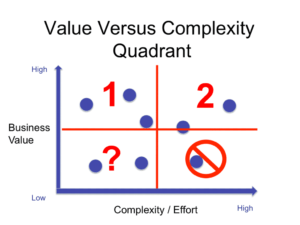
Kano Model: This model is based on customer delight versus product function. It means that the Product Manager needs to decide which function to improve that the customer will find exciting.
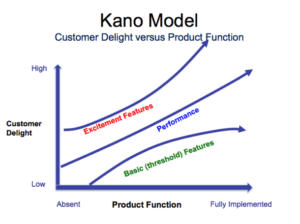
Buy a Feature: In this approach, the product team works directly with a set of customers or stakeholders and assigns them some play money and introduces them to the potential features. They are then asked to buy the features according to their preferences. Based on how the customers or stakeholders invest their play money, the Product Managers can decide on which features to include.
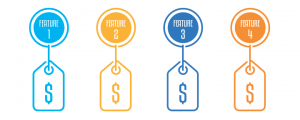
Opportunity Scoring: This scoring is calculated according to the importance of a feature versus customer satisfaction. A set of customers will be asked to provide scores on a few features and customer satisfaction. Based on the scores the product team can decide which features need work.
Affinity Grouping: This is a very interesting activity where the team brainstorms the features to be included. The participants write down their ideas on sticky notes. Once everyone has shared their ideas, the team conducts voting for feature prioritization.
3. What is your experience with shutting down a product or service? What are the key challenges in an end-of-life (EOL) process?
As a Product Manager, at least one of your products might have gone through the End-of-life (EOL) process. It must be a complicated decision to make. There could be several reasons to end the product like it wasn’t generating enough revenue; the product technologies become obsolete or the company was opting out from a particular market.
Here, the interviewer would like to know your understanding of the key elements involved in making an EOL process a success without affecting the stakeholders.
The Elements involved in EOL decision-making are:
- Sales notifications: Enabling the company’s sales functions in handling and communicating EOL situations to the customers.
- Customer migration plans: Helping customers migrate to a different product or suggesting another alternative.
- Returns, rebates, upsell policies: Considering the financial aspects of the product.
- End of life, end of support, end of availability: Deciding and communicating when you plan to stop sales and support for the product.
- Contracting: Before bringing a product to end, revisiting the contracts, particularly from large clients to ensure there are no penalties or breaches of SLAs.
You can explain how meticulously you brought the product life cycle to an end without affecting the company’s brand or losing any big clients.
Leadership Questions
Generally, Product Managers neither lead a team directly nor have the authority to tell people how and what to do. However, they need to collaborate with the development, marketing, sales teams and other stakeholders who help in building, marketing and selling the product and its new features.
Therefore, Product Managers leadership skills revolve around them being highly collaborative and decisive such that they can influence these stakeholders without directly managing them.
1. How do you set goals for your team? And how do you track these goals?
As Product Managers do not directly manage a team, they need to set project-specific long-term, mid-term, and short term goals. These goals can be divided into tasks for various teams involved at different stages of a product.
Product Managers are a connecting point between the development, design, marketing, sales team, and upper management. They need to work closely with the development team and also bring all these stakeholders on the same page.
They have to take important decisions about prioritizing the various tasks and goals and assign them to appropriate departments and team members. Using a collaboration tool can help in creating a well-defined product roadmap that is shared among all the stakeholders. These tools also make it easier for the Product Manager to create product-specific tasks for each team, and to track the progress of these teams.
2. How do you keep your team motivated?
As a Product Manager, you are expected to keep your team aligned and motivated towards a common goal. The interviewer would like to know how you inspire and encourage your team as a leader. Few points worth mentioning are:
- Establish an environment of trust and transparency: You maintain a culture of mutual trust within your team and keep transparency about leadership communication. This makes the team members more creative, productive and honest.
- Set clear goals: Sharing the Product Roadmap with the team helps each one of you to be on the same page and know what we are working towards as a team.
- Encourage product ownership: You encourage the engineers to take ownership of features they are working on and welcome any feedback/suggestions from them directly rather than asking to build everything as per request.
3. How do you communicate with executive leadership?
Communication is an imperative skill for Product Managers. They need to convey project information to executive leadership, partners, teammates, and other stakeholders. The interviewer wants to know how effective you are as a communicator. Mention some of the points that you keep in mind while speaking to leadership and which make you a better communicator. Few examples of these skills are:
- Be proactive: If there is a problem at hand, try finding a couple of solutions before you raise the issue in a stakeholder or leadership meeting. The issues will be better received if you include a potential approach plan in the discussion.
- Be empathetic: Get into their shoes. The executives are like your customers. Think about what information they will require like project costs, risks, schedules, etc.
- Keep it short and simple: Communicate the maximum information in minimal words. Whether it is email communication or a meeting, use short and crisp sentences and make the most of the executive’s precious time.
Behavioural Questions
Behavioural interview questions are aimed at understanding how you think and approach real-world dilemmas. The interviewer wants to gauge whether you would be a good fit for the current team and their culture or not.
Therefore, you must put yourself in the best light. That said, the answers must be realistic and honest. Focusing on self-awareness, growth and self-reliance will be a good way to proceed.
1. What are the key strengths that make you a great fit for this PM role?
It is very common for hiring managers to ask about the candidate’s strengths in an interview. You can mention some of the vital core competencies for Product Managers. Additionally, you can also mention the soft skills or the emotional intelligence skills that make you stand out.
Few competencies you can talk about are:
- Team management
- Product and market knowledge
- Resource allocation
- Market Research
- Pricing and revenue modelling
- Defining and tracking project success metrics
- Communication skills
An ideal way to answer this question is to pick up a few competencies that you are good at then give an example of how you used those competencies at work.
2. What aspects of product management do you find exciting?
This is a very important question that the hiring managers use to understand how passionate the candidate is about product management.
Set your priorities right while answering this one. While it may be true that attractive pay and being high up in the hierarchy are common reasons to be a Product Manager, refrain from citing the same. Instead, mention qualities and areas of product management that excites you.
Few examples could be:
- Opportunity to think out-of-box
- Use creativity at best
- The thrill of new challenges, brainstorming and problem-solving.
- Getting into customers shoes, empathizing with them and understanding their demands
- A position to grow your leadership skill - motivate individuals and helping them to achieve great things in their career
All the above reasons not only show the beauty of product management but also show your enthusiasm for the job and the field.
3. What are the two things you’re trying to improve that you believe will make you a better Product Manager?
Product Managers are not born but made. You may have N years of experience, yet there may be some skills that you can improve upon. This question might be another way to know about your weaknesses as a project manager and how you plan to overcome them.
Hence, choose to answer wisely.
Few points you can say are:
- Struggle to say no: It is one of the major problems faced by the workforce. People can’t say no and end up taking more work and setting impossible deadlines.
- Too connected to products: When managers are too connected to the products, it is difficult for them to handle criticism and learn to let go if the product is not able to do well in the market.
- Emotional Intelligence: Emotional intelligence is one skill that you can always work upon. Even if you think you are high on EQ, there are so many aspects that you can improve.
4. What are some of the key achievements in your role as a PM
The hiring managers want to see how well you have used your product management skills to derive results. Adding examples of successful project execution or product launch will be a good way to proceed with this answer. Also, numbers are more powerful than mere statements. So mention some figures and percentages while answering this.
For example,
Instead of “Got excellent customer feedback on reviews on XYZ project”
Say, “XYZ product obtained 45% revenue growth in a single quarter through effective planning, goal setting and by launching three new key features”.
5. What is the hardest thing you have experienced as a Product Manager?
Product Managers face a lot of difficult situations and people during their entire careers. And no matter what the situation, they have to bring positive outcomes out of it.
Syncing multiple tasks across various products require immense focus and time management. There are several issues that you might face while achieving all of this.
It could be a communication gap, scope creeps due to the stakeholder’s ambiguity of requirements, unclear goals, budgeting issues, lack of skilled team members, unrealistic deadlines, risk management issues, etc. All these problems are equally damaging to a product’s growth. Pick up any such issues that you struggle with most. Not only talk about why you find it difficult to use but also how you tackle them so that it doesn’t impact the project.
As a Product Manager, each of your successful or failed product launches brings you a step closer to tried and tested methods. Your last product launch must have taught you some great lessons which you can discuss with the interviewer.
Few examples of such lessons are:
- Create an awesome team: It is not you but the team that decides the success or failure of the product. As a Product Manager, you are responsible for creating a great team. Finding out everyone’s strengths and utilizing them, fixing the weak link and taking tough decisions within the team are some important qualities needed in your job. With each product launch, you must be realizing the importance of having a perfect team that complements each other. Remember to highlight this in your interview.
- Stay focused: With so many products and tasks in hand, it is human to sometimes lose focus or divert to other low priority tasks. The product launch might have reminded you how important it is to focus and not let negative self-talk affect you.
- Embrace critical feedback: Constructive criticism when embraced can help you improve on your product. The product launch might have given you a chance to hear and ponder over the positive criticism and gives you a perspective to try and understand the problem from the user’s point of view.
Technical Questions
Technical Product Managers are indirectly responsible for handling the core technical team. While technical or coding knowledge is not a must-have for a Product Manager, having a technical understanding makes it easy to communicate with the technical team. Hence, the interviewer would like to understand how proficient you are with the technologies that are required for the position you are being interviewed for.
1. How familiar are you with APIs?
Today, API’s are a part of almost every application and product. A fair knowledge about APIs can help the project managers define better workflows for projects and increase the potential for success.
The interviewer expects you to be a part of API conversations across your team. Show your knowledge and awareness on how to use APIs effectively. You may not be an expert but even basic API knowledge should suffice. With this knowledge, you can oversee the APIs being delivered within your projects and what impact they have. It will also give you an understanding of how and when the APIs are deprecated and need to be replaced by the next generation of API solutions.
2. Talk about the most technical project you’ve worked on and the successes and challenges within it.
The interviewer wants to know how well you understand the technical aspects of a project. You need to give an example of a project where you utilized your expertise as a technical project manager to make sound decisions for its smooth functioning.
Be honest while answering this question. We all learn through mistakes and so does a Product Manager. Mention all the good and not so good decisions and their repercussions. Also, talk about what was your thought behind going with a particular solution/ decision. Next, say which decisions led to success and which led to failure.
Data Analysis Questions
Data analysis is a crucial part of today’s work. By tracking and analyzing data, the Product Managers can create a path for successful projects and teams. The interviewer is likely to ask you a question that will show your competency and your knowledge in data analytics.
1. How do you measure the success of your product?
As a Product Manager, you must be using certain key performance indicators (KPIs) that can monitor your product’s position, growth, progress and success, and team. Some of the KPI’s worth mentioning to the interviewer are:
- Revenues or bookings: How much revenue is the product generating and how many bookings have the sales team successfully made.
- Funnel: How many customers are in the sales pipeline; i.e. how many identified potential customers the product has.
- Retention, attrition, churn, customer lifetime value: Retention and customer lifetime value suggest the number of users placing trust in the product. However, attrition and churn tell that the competitors may have a better solution to the customer’s problem.
- Customer counts: Number of active customers currently using the product.
- Margins, gross margins, costs of goods sold (COGS): Calculate profitability based on the cost involved and profits made.
Not just the metrics, also discuss what you do with the numbers once you receive them. For example, what did you do when you found that a KPI was not showing positive results? What action plan did you take, how did you do the root cause analysis and what was your thinking involved to solve this unexpected situation?
2. You are the PM for an eCommerce platform that you have just launched to a new market. What are the three most important metrics for you to keep track of?
There are several metrics and KPIs that can be used to track the performance of an eCommerce platform. You can mention any three metrics that you have used personally or which are used within your team.
Few such important metrics are:
- Shopping cart abandonment rate: Shoppers visit your eCommerce platform, place items in the cart but never purchase them. If you find high numbers in these metrics, you will have to figure out why customers abandon the cart. Is the checkout process difficult? Do customers have a better experience at some other eCommerce site? Are competitors offering low prices?
- Conversion rate: The conversion rate shows the number of people who visit your website/app and make a purchase. These metrics give you an idea of how effective your UX is and how successful is your landing page in attracting and converting leads.
- Customer acquisition cost: These metrics calculate how much money you are spending in buying the customer. This includes the money you spent in the market in sales. Based on your average order value, you can decide upon an approximate acquisition cost per customer.
3. Talk about a time you used data to make a product decision.
Today, every commonly used software product is data-driven whether it is Whatsapp, Spotify, Amazon, Facebook, or Netflix. Relying on data for goal setting and planning, tracking and analyzing, adding or removing features, etc. can make a significant difference in a project’s success.
As a project manager, you should be able to leverage data through the use of business intelligence and business analytics tools. These BI tools provide numerous metrics to use numbers for analyzing the performance of a project, set and track goals, etc.
Let’s consider the example of Google which is well known for its data-driven decision making. Not only the company’s products but people’s management too is driven by data.
Google has a People Analytics Department which aids the Human Resource department to use data and numbers for deciding manager effectiveness. This in turn has a direct impact on the teams’ performance. Data helped Google come up with the ‘Project Oxygen’ for managers which was based on the findings that teams with better managers performed best. They are happier at work and have an extremely low attrition rate.
Takeaway
Interviews are the deciding factor whether you are right for the opportunity in hand. While no two interviews are the same, our guide of questions for the Product Manager interview will certainly keep you ahead of other candidates.
Get thorough with the questions in the article and go get that Product Manager job.
Backend Technology Interview Questions
C Programming Language Interview Questions | PHP Interview Questions | .NET Core Interview Questions | NumPy Interview Questions | API Interview Questions | FastAPI Python Web Framework | Java Exception Handling Interview Questions | OOPs Interview Questions and Answers | Java Collections Interview Questions | System Design Interview Questions | Data Structure Concepts | Node.js Interview Questions | Django Interview Questions | React Interview Questions | Microservices Interview Questions | Key Backend Development Skills | Data Science Interview Questions | Python Interview Questions | Java Spring Framework Interview Questions | Spring Boot Interview Questions.
Frontend Technology Interview Questions
HTML Interview Questions | Angular Interview Questions | JavaScript Interview Questions | CSS Interview Questions
Database Interview Questions
SQL Interview Questions | PostgreSQL Interview Questions | MongoDB Interview Questions | MySQL Interview Questions | DBMS Interview Questions
Cloud Interview Questions
AWS Lambda Interview Questions | Azure Interview Questions | Cloud Computing Interview Questions | AWS Interview Questions
Quality Assurance Interview Questions
Moving from Manual Testing to Automated Testing | Selenium Interview Questions | Automation Testing Interview Questions
DevOps and Cyber Security Interview Questions
DevOps Interview Questions | How to Prevent Cyber Security Attacks | Guide to Ethical Hacking | Network Security Interview Questions
Design Product Interview Questions
UX Designer Interview Questions
Interview Preparation Tips
Strength and Weakness Interview Questions | I Accepted a Job Offer But Got Another Interview | Preparation Tips For the Virtual Technical Interview | 7 Tips to Improve Your GitHub Profile to Land a Job | Software Engineer Career Opportunities in Singapore | What can you expect during a whiteboard interview | How To Write A Resignation Letter | Recommendation Letter Templates and Tips.
Quick Links
Practice Skills | Best Tech Recruitment Agency in Singapore, India | Graduate Hiring | HackerTrail Litmus | Scout - Sourcing Top Tech Talent in ONE Minute | About HackerTrail | Careers | Job Openings.





